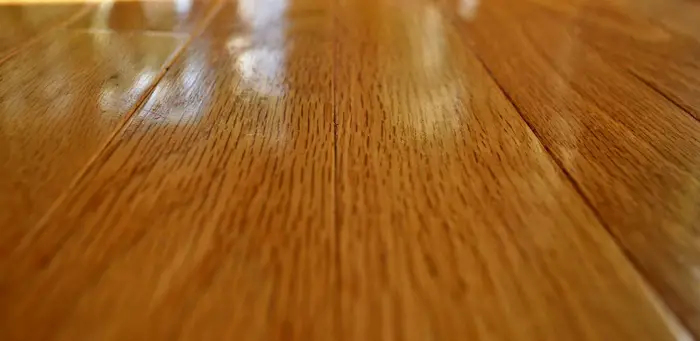Washing sheets is considered some of the simplest laundry. That is, right until you mix them up with towels and have to deal with tiny balls of towel fabric that will attach themselves to your sheets. That is why should know how to clean your sheets properly to achieve that fresh comfortable experience when using them.
So, can you wash sheets and towels together? The short answer is no, as mixing sheets and towels when washing may lead to lint sticking to your sheets. This can be especially severe if your sheets are white and they get covered with different colors of lint from the towels.
To avoid all of this, you should sort your laundry into clothes, sheets, and towels before throwing them in the machine. There are also a number of other reasons why you should not clean sheets with towels.
This article will look into why you should not wash sheets and towels together, as well as covering some other mistakes often made when washing sheets, some tips for washing sheets and other related issues. Keep reading for more insights.
Why You Shouldn’t Wash Sheets and Towels Together
While doing laundry may appear like basic cleaning, there is more to it than meets the eye. That is why washing your sheets and towels together is not a good idea. Apart from the lint forming on your sheets, there are other reasons as to why you should not wash sheets and towels together.
- Sheets and Towels are Made of Different Fabric
Most towels are made of an all-cotton terry cloth while sheets are typically made of a lighter cloth, usually percale cotton. But what does the fabric have to do with washing them? It has everything to do with it.
The thing is that different fabrics have different weights. As a result of this difference, fabrics require different lengths of time for washing and drying. In this case, sheets will dry after about 30 minutes while towels can take up to one hour. Therefore, when washing them together, you will not obtain the best results for both.
- Towels May get Trapped in The Sheets
Sheets are bigger than towels, therefore it’s easy for towels to be balled up inside a sheet when doing laundry. When this happens, the towel may not be washed properly nor will it dry completely. This is why you need to sort your laundry and wash the sheet separately from the towels.
Moreover, even when cleaning the sheets with other bedding like pillowcases, make an effort to stop the dryer mid-way and turn the laundry over. This makes sure that any bedding that may have been balled up in the sheets are cleaned as well.
- Effect of Friction
Towels are made of a sturdier fabric while sheets are made to feel soft and gentle on the skin. When you wash the two together, the towel may create a lot of friction, therefore reducing the lifespan of the sheets over time.
Other Mistakes to Avoid When Washing Sheets
Besides washing sheets together with towels, the following are a number of other common mistakes that people tend to make when cleaning sheets.
- Running the Machine on a Very Hot Cycle
An extremely hot cycle means washing your sheets in hot water and drying them under high heat. This is not recommended, as cotton shrinks when exposed to extremely high temperatures. Therefore, to avoid shrinking your sheets, make sure to keep the temperatures reasonable.
- Using Harsh Detergents
Hard detergents can damage or age your sheets. This is because, in ideal cases, your sheets should not get as dirty as your normal clothes. If you use detergent designed for clothes on your sheets, you risk damaging them and shortening their lifespan. This is especially true for sheets made of softer fabric.
To avoid this, it is recommended you use gentle detergents such as baby detergents when cleaning your sheets. Note that using excess detergent also poses a risk of damaging your sheets.
- Leaving your Sheets in the Washer
What is the problem with leaving your sheets in the washer? Well, sheets left in the washer once they are finished end up developing creases.
Nobody wants to use creased sheets, so how do you avoid such situations? That’s simple; once you are done washing your sheets, get them out of the washer, shake them out and place them in the dryer.
- Overloading the Washer
Sheets are naturally bigger than most other laundry. As such, loading your washer with sheets is not the same as loading it with clothes. That is to say you should be careful to avoid putting too many sheets in the washer. Overloading your washer can lead to the sheets tearing if they end up catching on the agitators.
Tips for Washing Sheets

Now that you understand the common mistakes to avoid when washing sheets, use the following tips to ensure you clean your sheets effectively and attain the best results.
- Check the Labels
If you are often confused by the terms associated with laundry, it is advised that you make use of the labels attached to sheets. The labels may help you identify which temperatures to use, how to dry the sheets and even if you should use bleach on the sheets. So save yourself the confusion and check the labels.
- Read the Machine’s Manual
After you identify what the sheets require as indicated on the label, make an effort to familiarize yourself with the machine. You can do this by reading the manual. It will help you identify which wash cycles fit the guidelines stipulated on the label.
If the sheets do not have a label, you should always consider that severe dirt will require the heavy-duty cycle while light stains will be cleaned by the normal cycle.
- Treat Your Sheets before Placing Them in the Washer
In case your sheets have stains, you should treat them first before washing them. The most suitable time to treat your sheets is right after they get stained. You can treat them by soaking them in a mixture of water and detergent.
To get rid of blood stains, soak the sheets in cold water mixed with detergent. If the stain is stubborn, use a scrub to wash it off right before tossing the sheet in the washer.
If you are looking to get rid of body oils stains, you can soak the sheets in a mix of borax, vinegar, water, and dishwashing soap. Allow the sheet to sit in the mixture for about 30 minutes, then place it in the washer and run the machine in a hot cycle.
- Use Different Temperatures of Water for Different Colors of Sheets
It is recommended that you wash white, ivory, and natural colors in warm water. If your sheets have a darker color, you should use cold water to avoid fading. That said, it is recommended you use warm water in general during the flu or cold seasons. Warm water helps to get rid of bacteria, leaving your sheets fresh and ready for use.
- Shake Sheets
To avoid creases from forming on the sheets, make an effort to shake them between the washing and drying process.
You can also avoid wrinkles by removing the sheets from the dryer when they are still warm and laying them flat across your bed. This functions just like ironing them.
When drying your sheets, tumble them on medium heat for the best results.
- Dealing with Different Fabrics of Sheets
Different sheet fabrics – that is to say silk, cotton, and satin, among others – require different handling when washing them.
For instance, silk and satin sheets need detergents meant for soft or delicate fabric. For silk sheets, you should avoid using bleach on them to get rid of stains. Soaking silk sheets in detergent and water will serve the same purpose without damaging them. Linen sheets, on the other hand, should be washed in a cold wash cycle.
- Ironing
If you are looking for a crisp look for your sheets, you can use a warm iron. Ironing is also good for helping to get rid of any mites and bacteria that may have been left behind after cleaning. Moreover, ironed sheets are easily stored for future use.
Related Article: 4 Best Tumble Dryers To Avoid Ironing
- Storage
All laundry (including sheets) should be placed in a cool and dry place away from direct sunlight to avoid fading.
Related Questions
How often should I wash and change my sheets?
The recommended frequency for cleaning your sheets is once per week. This is especially the case for people who have pets, share a bed with someone or even have had a guest recently.
However, if you are living alone, you can clean your sheets after a maximum of two weeks. Once a week may feel like a tad too much, but it is nothing compared to the number of hours we spend on the bed per week. Cleaning our sheets regularly helps to get rid of dead skin, absorbed oils, and fluids among other substances that, if left to build up, may pose a health and hygienic concern.
Can you wash polyester top sheets with towels?
Just as washing normal sheets with a towel is not recommended, washing polyester top sheets with towels is also not a good idea. Since towels are heavy, they may pull on the polyester sheets, causing them to tear or leaving holes in them. To be safe, wash each of them separately.
Can you wash sheets together with clothes?
Even though it wouldn’t be the end of the world, it is not recommended to mix your sheets with clothes when doing laundry. First, since the sheets are large, the clothes tend to be balled up in them and end up not being washed properly.
In the same way, this balling up also prevents the clothes drying completely. As a result, you end up with wet clothes that would have been avoided by doing your laundry separately.
Second, as mentioned above, clothes and sheets typically pick up varying levels of dirt, which means they require different wash cycles. If you replace and wash your sheets frequently, washing them will require a regular setting. On the other hand, in case your clothes are too dirty, you will need a heavy-duty cycle for them. As such, there is not an in-between cycle and using a one-wash cycle comes at the expense of either clothes or sheets not getting clean.
Related Article: Can You Wash Clothes With Body Wash?








